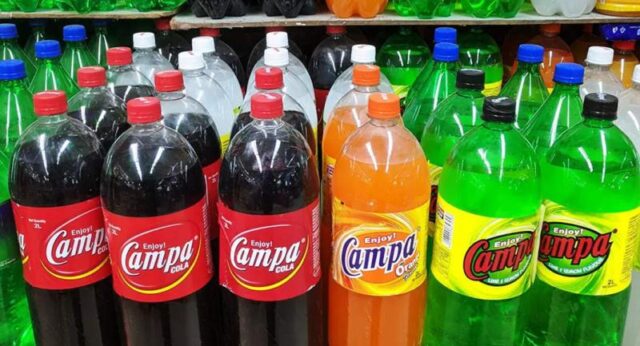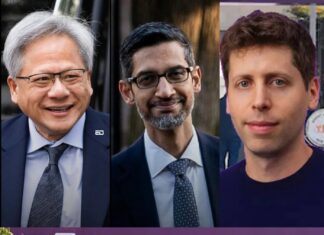In a surprising revival, Mukesh Ambani’s Reliance Consumer Products Ltd (RCPL) has relaunched Campa Cola, a nostalgic soft drink brand from the 1970s and 80s, as a powerful challenger to Coca-Cola and PepsiCo in India.
Known for disrupting industries with aggressive strategies, Reliance has re-entered the cola market with plans that echo the playbook used for the telecom sector with Jio.
With disruptive pricing, a massive distribution network, and an appeal rooted in nostalgia, Campa Cola is positioning itself to capture the hearts—and wallets—of Indian consumers, reshaping India’s $4.6 billion soft drink market.
The Power Of Price
Reliance’s aggressive pricing is designed to disrupt the market, creating waves among rivals like Coca-Cola, PepsiCo, and even local players like Tata Consumer Products. With prices as low as Rs. 10 for a 250 ml bottle – half the price of its main competitors – Reliance has forced companies like Tata to rethink their strategies, as Campa Cola offers retailers attractive profit margins.
By offering higher trade margins to local Kirana stores, Campa Cola is not just reducing consumer prices but also aligning itself with small retailers, ensuring prime shelf space in the fragmented Indian market. According to The Economic Times, “This local partnership approach is crucial to Campa Cola’s expansion, as it allows retailers to boost profits while delivering a cheaper alternative to consumers.”
Tata Consumer Products, previously pricing its beverages 20-30% above its rivals, recently adjusted its prices to avoid losing ground to Campa Cola’s lower-cost appeal. Additionally, Campa’s festive season prices- Rs. 10 for 200 ml and Rs. 20 for 500 ml bottles – have resonated especially with budget-conscious consumers, amplifying Reliance’s foothold across both urban and rural regions.
Read More: Is Jio Bullying Other Network Operators To Monopolise The Market?
How Campa Cola Mirrors Reliance’s Telecom Playbook
Much like Reliance Jio’s entry into the telecom market in 2016, where it launched with aggressive pricing and free services to dismantle competition, Campa Cola’s re-emergence is similarly poised to destabilise the soft drink industry.
In telecom, Jio’s free voice and low-cost data forced competitors like Vodafone and Idea to merge while others exited entirely. Likewise, Campa Cola’s affordable pricing could similarly pressure Pepsi and Coca-Cola to cut prices, potentially sacrificing profits to retain market share.
Reliance has invested Rs 3,000 crore in RCPL’s FMCG products, with Campa Cola contributing Rs 400 crore during its first full year. Additionally, the company has earmarked Rs 500-700 crore to set up bottling plants across India, which will increase production capacity and reduce supply constraints, mirroring Jio’s investment in telecom infrastructure.
A consultant with Euromonitor, as reported by the Economic Times, remarked on this dual-force strategy, “Reliance’s financial muscle and national reach make it a unique threat to traditional market leaders.“
The Heart Of Campa Cola’s Marketing Strategy
One of Reliance’s smartest moves is leveraging Campa Cola’s nostalgic value as a “homegrown” brand, appealing to Indian consumers’ pride in local products. Originally popular before Coca-Cola and Pepsi entered India, Campa Cola is positioned as the “Indian alternative” to American brands.
Mukesh Ambani, aiming to revive Indian heritage brands, purchased Campa for Rs. 22 crore in 2022, rebranding it as a symbol of Indian identity. According to Euromonitor, the $4.6 billion Indian soft drink market is expected to grow 5% annually until 2027, presenting an opportunity for Campa Cola to capture a significant share, especially among consumers looking for an Indian alternative.
Reliance’s vast retail network, including Reliance Fresh and Jiomart, has amplified Campa’s reach across both major cities and smaller towns. This approach reinforces the brand’s local appeal, making it a cultural statement as much as a cola choice. Industry experts note, “Reliance is betting on both price and emotion to engage consumers- a potent combination that draws from Indian pride and nostalgia.”
Is Reliance The Potential Monopoly?
Reliance’s dominance across multiple sectors, including telecom, digital media, and now FMCG, has stirred concerns over potential monopolistic practices. Similar to how Jio’s aggressive pricing forced competitors to either merge or exit the telecom market, Campa Cola’s deep price cuts may compel Coca-Cola and PepsiCo to either reduce their prices or lose market share.
Given the company’s sheer financial resources and extensive distribution network, industry observers worry that Reliance could monopolise the soft drink industry, leaving little room for smaller players or new entrants.
This rapid scaling strategy may also reduce consumer choice in the long run, as fewer companies will be able to compete with Reliance’s lower price points. Experts caution that if rivals are unable to compete with Reliance’s lower margins, consumers might end up with limited options, echoing the consolidation seen in the telecom sector.
“Reliance’s strategy of low pricing to achieve scale could risk creating a monopoly, reducing market competition and diversity,” an industry insider stated.
With Campa Cola, Reliance Industries is staging a new kind of cola war—one marked by pricing and local identity, rather than ad campaigns. Campa Cola’s low-cost, high-nostalgia positioning has already disrupted the Indian beverage industry, making rivals re-evaluate their pricing models and promotional strategies.
As Reliance doubles down on its aggressive market tactics, the company’s influence over the FMCG sector appears set to grow, offering consumers affordable options but raising questions about monopolistic control.
Much like Jio’s sweeping influence in telecom, Campa Cola’s re-emergence could reshape India’s beverage market for years to come, providing a quintessentially Indian alternative in a space long dominated by multinational giants.
Image Credits: Google Images
Sources: Economic Times, Times of India, India.com
Find the blogger: Katyayani Joshi
This post is tagged under: Reliance, Campa Cola, India Beverage Market, Cola Wars, Campa Cola Revival, Ambani Vs Coke, FMCG India, Indian Consumer Trends, Reliance Strategy, Price War, Nostalgia Marketing, Soft Drink Market, Indian Retail, Pepsi Vs Campa, Disruptive Pricing, Jio Effect, Local Brands, Made In India, Retail Revolution, Consumer Goods India, Beverage Industry, Campa Cola Comeback, Reliance Vs Pepsico
Disclaimer: We do not hold any right, or copyright over any of the images used, these have been taken from Google. In case of credits or removal, the owner may kindly mail us.

































